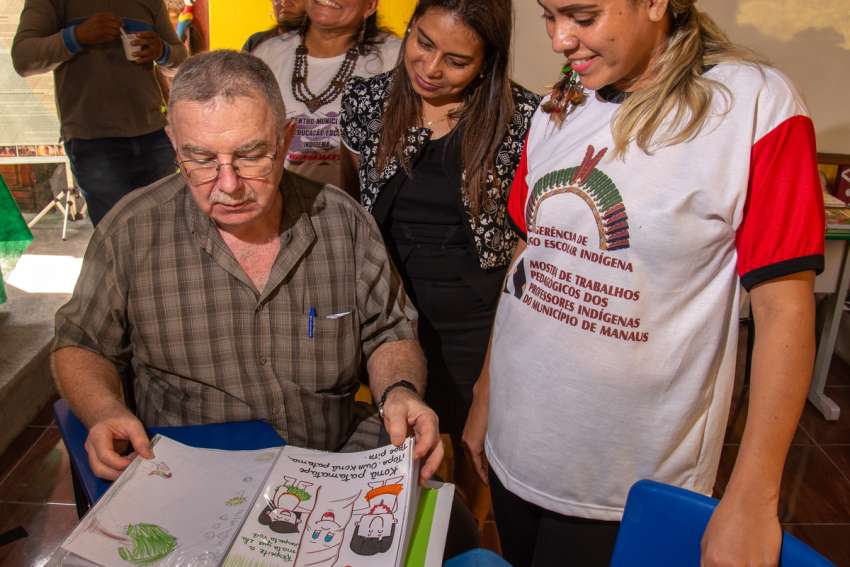BOA VISTA, BRAZIL -- A Canadian priest has launched a new phase in his efforts to preserve the threatened languages of the Makushi and Wapishana Indigenous peoples in the vast Diocese of Roraima in northern Brazil.
It’s a second life for the life’s work of Fr. Ron MacDonnell, general superior of the Toronto-based Scarboro Missions, who has launched a digital reboot of these endangered languages with four years worth of language lessons.
MacDonnell has arranged to have a series of audio language lessons posted to the diocesan website. Originally broadcast on the Brazilian bishops’ radio network for Indigenous ministry between 2004 and 2008, the material has been dormant on hard drives for years. The language classes were part of an effort MacDonnell spearheaded during 20 years of missionary work in Brazil aimed at recovering the endangered, disappearing languages.
From young Makushi who want to learn the language of their grandparents to scholars around the world, the 25 language lessons on mp3 files matched with a PDF text for each of the two languages are now available to language learners and scholars with access to the Internet.
Since returning to Toronto to take up administrative work with his order, MacDonnell has in recent years been unable to deliver the workshops, teacher training and conferences that were central to the linguist’s work among Indigenous people.
“The value is that they are not in archives,” MacDonnell said.
An effort to recover and preserve Indigenous culture is central to the work of the diocese, explained Roraima Bishop Evaristo Spengler. For over a century the local Church has defended the rights of Indigenous people and encouraged them to “recover their history, their language, traditions and way of life,” Spengler said.
Indigenous Brazilians, including the Makushi, have been “under cultural attack” for generations, said the bishop. Until 50 years ago the Makushi were not recognized as an Indigenous people, dismissed and marginalized as “coboclos,” people of mixed race. Often they were enslaved by ranchers and farmers.
“They were treated like animals,” said Spengler.
When Benedictine missionaries arrived in 1909, they were shocked to find Makushi who had been branded by white ranchers, using the same brand they used on cattle.
Bringing back Indigenous languages isn’t just an exercise in linguistics, it’s a way of recovering the human dignity of people who are no less deserving of a culture and identity than Germans or Italians, said Spengler. The bishop, who has been in Roraima for less than a year, said MacDonnell’s language program is an important part of the Catholic history of Roraima.
“I’m pleased to meet the new bishop,” said MacDonnell. “And discover his great support for Indigenous languages and cultures.”
Between 50 and 90 per cent of the world’s 6,000 languages are in danger of becoming dead languages by the year 2100. Indigenous languages in North and South America are among the most endangered.
Pope Francis has repeatedly called on the Church to recognize the value of Indigenous culture and languages.
MacDonnell’s research notes and papers — the material behind the language lessons, translations of Makushi legends and renderings of prayers and Gospel passages in Makushi — have been collected into half a dozen plastic storage boxes and added to the Diocese of Roraima’s archives. MacDonnell hopes that during future visits to Boa Vista he will be able to digitally archive more material.


